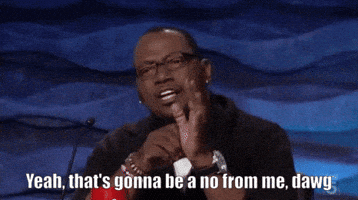Amongst Residents:
1. Getting too relaxed and breaking character. See gulmour's post above for a good example. Sometimes when people are stressed and they get a very reassuring sign/compliment from the interview, they start breaking character out of joy. No matter how good/reassured your feel, don't say anything too informal. Oftentimes what you're being told is what interviewers tell everyone. Residency interviews have gone virtual and sometimes people feel more secure than they should in the comfort of their own homes and start oversharing. Just go into the whole day with the mentality that you should be making no enforced errors.
2. Some residents like to ask advanced questions or questions they already know the answer to show how smart they are. People subconsciously clue into this and judge the applicant who probably thinks in the moment that they're being super smart.
3. Talking about the same thing over and over again. There was this one girl who decided to simultaneously pick up a sour-dough baking, plant-growing, and a chess-playing hobby in 2020 and wouldn't shut up about them. These three things were really your burning passions before the pandemic weren't they?
With Program Leadership/During Interviews
1. Just avoid politics and religion. You never know what someone believes. I lean left myself but you sometimes won't believe how many times interviewees think it's OK to openly mock the former president. Just because Trevor Noah does it doesn't mean you can too. Same goes for patient's in the hospital.
2. Giving me a significant/bad weakness during the "what are your weaknesses" question. Some people have openly volunteered that they have been given feedback that they're "inefficient" and "lack organization" despite it not showing up on their dean's letter. You know I am writing that *$^& down right? I let it slide, but I imagine program leadership would probe deeper or ask for an example. Why are you giving them fuel?
3. Just keep in mind one poorly timed phrase can really hurt. One time I had someone say in a group interview that "I suppose that's why I bothered to drive over here" after an otherwise pretty decent answer...I'm like dude, why...Think before making an exclamation and don't try unplanned jokes.
4. If you really are stumped by a question, you do have a few seconds to look down and think, another few to say something to buy time, and maybe even another few to start to answer in a round about way, but then you do have to collect yourself and provide some sort of answer. We often ask people the same questions so if you're not able even generate a response to a question that most other interviewers fielded well, that's a bit of a knock. If you have to, give a half-baked/short answer and let the interviewer follow-up and then maybe you'll get an idea and can expand and all is well.
5. Asking the interviewer personal questions. In a group interview with the chief resident, one Filipino guy asked Filipina girl (chief) if she was in a relationship. To be fair to him, I think he was planning on going somewhere with it (i.e. do you have enough time to see your partner, etc.). He seemed to be doing well up until that point, but at that point, I could tell one of our associate PDs took offense by her body language. Just play it safe! No need to ask these questions.
6. Rehearsing your interview answers. Personally I can be a bit harsh and I see this as a sign of lack of creativity/ability to think on your feet which makes me wonder how the person will react when something unexpected is thrown at them. I think everyone can see if answers are rehearsed though and it can come off as boring. It's not the biggest mistake that you can make but some may judge or think you're compensating for poor communication skills. No need to prep extensively by writing out and reading answers. Instead, identify what the 20 most likely questions you'll be asked are and brainstorm what you want to talk about when these are asked with bullet points so you don't pull a #4. Do this before your interviews once or twice and that should be sufficient.
7. Not addressing your application's gaps on your terms. When the interviewer asks you to tell them about yourself, this is where you tell them why you're reapplying to residency or took a 2 year gap, not the time to spend 10 minutes telling them how your parents met.
8. Make eye contact to avoid rambling or going on random tangents. Sometimes applicants I feel mistake the interviewees interest in a topic and keep rambling about their hobby. Make sure you're making good eye contact with your interviewer to understand when they're bored. I remember one guy talking about League of Legends (which is fine!) but he spent 15 minutes talking about it when we had a few more scripted questions to ask him and time ran out. He matched with us, but like still...
9. Badmouthing any entity whether that be a former teachers/colleagues, your school/curriculum, or other institutions. First of all, you don't know who's from where. Second of all, negativity isn't well received and people begin to wonder if you bad mouth others behind their backs, when will you badmouth us if you match.
10. To end on a light-hearted note, this usually isn't a problem and I get that many are hungry but time your bites during sessions with food. When we're going around in a zoom circle, don't take a large bite of your catered sandwich when you're up next. This isn't a huge gaffe or a big deal but just something to watch out for.

